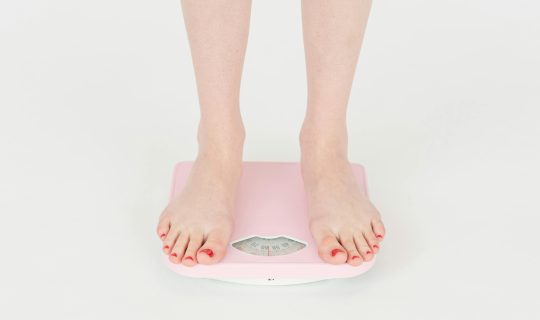Ozempic, Wegovy and other GLP-1 agonists — often referred to as weight loss jabs — have become almost impossible to ignore. They’re widely promoted for appetite control, weight loss and improved blood sugar regulation, and for many busy women they seem like a welcome shortcut when trying to lose some extra weight (not discussing here…
The Gut-Brain Axis Explained
by Lucia Stansbie
An exciting new area of research is beginning to uncover the fascinating link between our brain and gut and the impact diet can have on our mental health and mood.
Welcome to the concept of gut-brain axis.
The gut-brain axis is a bidirectional communication system, linking emotional and cognitive centres of the brain with our intestinal functions, influenced by the gut microbiota.
We all intuitively know that our mental state can affect the feeling in our gut – like when anxiety or nervousness cause us to have “butterflies” in our stomach. What we are just beginning to understand is that this process can also happen in reverse – our gut can communicate with the brain and can affect our mental state and even trigger feelings like anxiety.
The main communication channel between the gut and brain is a nerve called the vagus nerve: a cranial nerve, physically connecting the brain to the gut. Almost every neurotransmitter present in the gut is also replicated in the brain, and the two systems continuously communicate via the vagus nerve.
How the gut affects the brain
The gut microbiota is composed of 300-500 different kinds of bacteria (the most prominent phyla are *Firmicutes* and *Bacteroides)*, fungi and viruses and each individual has their own unique profile. Each individual has a unique microbiota although similarities are observed in people following a similar and specific diet (for example vegetarians or meat eaters) or between people affected by a specific condition or disease. Our gut microbiota is not fixed but rather can change according to our diet, lifestyle and health.
Specific bacteria strains in the gut microbiota produce short chain fatty acids (SCFA) as a result of fibre fermentation. SCFA can impact functions of the nervous system such as:
1. stimulating the sympathetic nervous system (fight or flight response)
2. stimulating serotonin (happy hormone) release
3. stimulating GABA (relaxing hormone) production
4. influencing memory and learning process
This means that the quantity of SCFA producing bacteria that an individual has can directly impact their production of hormones, memory, learning processes and stress levels. Studies observed that patients suffering from depression have reduced gut microbial abundance and diversity as well as reduced SCFA production compared to non clinically depressed individuals.
Inflammation and mood
Gut inflammation caused by a stomach bug, IBS, celiac disease or other conditions directly impacts the microbiota, altering its balance. This concept is known as dysbiosis, meaning the variety of bacterial strains is reduced and some pathological bacteria can be prevalent, leaving less space for the good, SCFA producing bacteria to thrive.
The combination of inflammation and less SCFA can impact the structure of the gut wall which won’t function properly as a physical barrier towards pathogenic bacteria that live in the intestines. The pathogenic bacteria trying that manage to enter deeper layers of the gut will then further the inflammation creating a vicious cycle. A dysfunctional gut wall will also lose its ability to facilitate the communication between microbiota and the vagus nerve endings – this means communication breakdown between the brain and the gut.
Inflammation can also impact tryptophan pathways. Tryptophan is an essential amino-acid which is then metabolised into serotonin (happy hormone) and then in melatonin (sleep hormone). When inflammation is present, tryptophan is instead converted into quinolinic acid, a neurotoxin compound which is associated with neuronal damage and could be a contributing factor for the development of depression.
The role of nutrition
Inflammation and the strains of bacteria that populate our gut are directly impacted by nutrition. A diet rich in fibre can increase SCFA producing strains and lower inflammation. Equally a diet rich in processed foods and simple sugars can feed pathogenic strains. Certain drugs, undetected food intolerances and allergies (including celiac disease) can further inflammation and create a situation of gut dysbiosis where photogenic strains are proportionally high and can alter the gut microflora balance.
One intervention used across a range of different studies is the use of probiotics to reintroduce beneficial species or the introduction of fermented foods (kimchi, kombucha, sauerkraut, yoghurt, kefir,..) into the diet. Fermented foods can support “good” microbe strains and can have a great benefit on the gut-brain axis communication. Studies on probiotic use suggest that Lactobacillus casei (strain Shirota) improved mood in participants with low baseline mood scores.
Such interventions should be monitored by a registered nutritionist that can suggest the best dietary plan to support the gut microbiota and consequently the gut-brain axis. It is also worth remembering that nutrition is only one piece in the wider conversation on how to support mental health and that diagnosed conditions should be monitored by a medical doctor.
How the brain impacts the gut
Brain neurotransmitters can also affect the gut, the composition and total quantity of the microbiota.
The central nervous system modulates gut functions such as motility, secretion of acid, bicarbonates and mucus, intestinal fluid and mucosal immune response – all important for the maintenance of the biofilm where individual groups of bacteria grow. Stress can severely impact all the above functions, creating a less favourable environment for bacterial strains to grow, causing a decrease in their number and differentiation.
Meditation and mindfulness techniques can have a positive impact in reducing stress levels and consequently in balancing gut functions influenced by the central nervous system.
Summary
The gut and brain are directly connected and taking care of your gut health could also have a positive impact on your mental health. Diet and gut inflammation can impact the gut microbiota and other processes which will have an impact on neurotransmitter and hormone production. This can ultimately impact mood and the brain. A registered nutritionist can create a bespoke plan to support the “good” bacteria in the gut which could also help support mental health. Listening to your body and linking changes in digestive and gut habits to changes in mood and brain function can help your nutritionists create a plan and investigate deeper roots of possible issues such as a food intolerance or dysbiosis.
REFERENCES:
Carabotti, M., Scirocco, A., Maselli, M. A., & Severi, C. (2015). The gut-brain axis: interactions between enteric microbiota, central and enteric nervous systems. Annals of gastroenterology, 28(2), 203–209.
Cervenka, I., Agudelo, L. and Ruas, J., 2017. Kynurenines: Tryptophan’s metabolites in exercise, inflammation, and mental health. Science, 357(6349).
Deng, Y., Zhou, M., Wang, J., Yao, J., Yu, J., Liu, W., Wu, L., Wang, J. and Gao, R., 2021. Involvement of the microbiota-gut-brain axis in chronic restraint stress: disturbances of the kynurenine metabolic pathway in both the gut and brain. Gut Microbes, 13(1), p.1869501.
Du, Y., Gao, X., Peng, L. and Ge, J., 2020. Crosstalk between the microbiota-gut-brain axis and depression. Heliyon, 6(6), p.e04097.
Ezra-Nevo, G., Henriques, S. and Ribeiro, C., 2020. The diet-microbiome tango: how nutrients lead the gut brain axis. Current Opinion in Neurobiology, 62, pp.122-132.
Jiang, H., Ling, Z., Zhang, Y., Mao, H., Ma, Z., Yin, Y., Wang, W., Tang, W., Tan, Z., Shi, J., Li, L. and Ruan, B., 2015. Altered fecal microbiota composition in patients with major depressive disorder. Brain, Behavior, and Immunity, 48, pp.186-194.
Lv, F., Chen, S., Wang, L., Jiang, R., Tian, H., Li, J., Yao, Y. and Zhuo, C., 2017. The role of microbiota in the pathogenesis of schizophrenia and major depressive disorder and the possibility of targeting microbiota as a treatment option. Oncotarget, 8(59), pp.100899-100907.
Mörkl, S., Butler, M., Holl, A., Cryan, J. and Dinan, T., 2020. Probiotics and the Microbiota-Gut-Brain Axis: Focus on Psychiatry. Current Nutrition Reports, 9(3), pp.171-182.
Pasco, J., Nicholson, G., Williams, L., Jacka, F., Henry, M., Kotowicz, M., Schneider, H., Leonard, B. and Berk, M., 2010. Association of high-sensitivity C-reactive protein with de novo major depression. British Journal of Psychiatry, 197(5), pp.372-377.
Waclawiková, B. and El Aidy, S., 2018. Role of Microbiota and Tryptophan Metabolites in the Remote Effect of Intestinal Inflammation on Brain and Depression. Pharmaceuticals, 11(3), p.63.
Winther, G., Pyndt Jørgensen, B., Elfving, B., Nielsen, D., Kihl, P., Lund, S., Sørensen, D. and Wegener, G., 2015. Dietary magnesium deficiency alters gut microbiota and leads to depressive-like behaviour. Acta Neuropsychiatrica, 27(3), pp.168-176.
Wium-Andersen, I., Wium-Andersen, M., Jørgensen, M. and Osler, M., 2017. Anti-inflammatory treatment and risk for depression. Journal of Psychiatry & Neuroscience, 42(5), pp.320-330.



